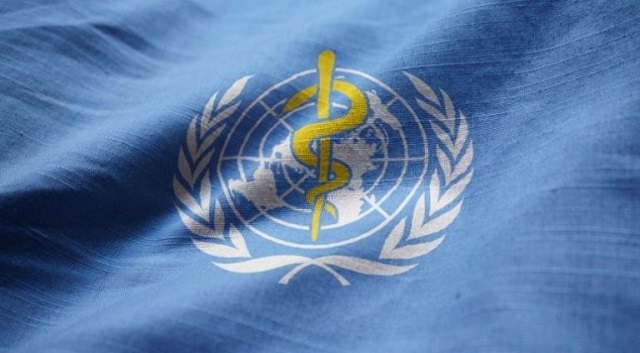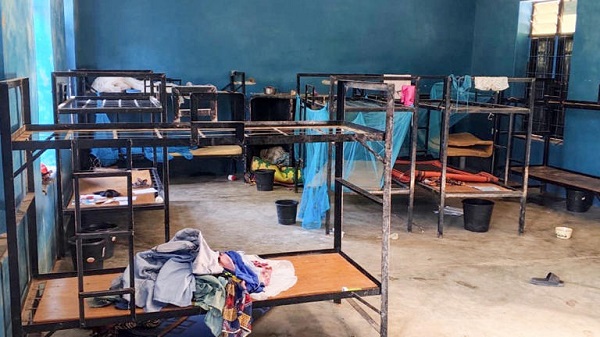COVID-19
WHO health treaty a convenient cover for more government overreach: Bruce Pardy

From the MacDonald Laurier Institute
By Bruce Pardy
The updated regulations will transform the WHO from an advisory body to the directing mind and will of global health.
Last September, the CBC ran a hit piece on Conservative MP Leslyn Lewis after she warned that a new international pandemic treaty could undermine Canadian sovereignty over public health.
Catherine Cullen, the CBC journalist, quoted three academics to debunk Lewis’ claims. It’s nonsense, said Stephen Hoffman of York University. “So far from the truth that it’s actually hard to know where to begin,” said Kelley Lee of Simon Fraser University. It’s fearmongering, said Timothy Caulfield of the University of Alberta, as no treaty can suspend the Canadian Constitution. That last part is correct, but Lewis is right to be concerned. Under the guise of international cooperation, governments are devising a cover to enact even tougher public health restrictions next time a crisis is declared.
The World Health Organization (WHO) is drafting a new pandemic agreement and amendments to the International Health Regulations, which since 2005 have set out countries’ obligations for managing the international spread of disease. Member countries of the World Health Assembly are expected to approve both in May. The agreement would establish governing principles for an international pandemic management regime, and the updated regulations will transform the WHO from an advisory body to the directing mind and will of global health.
Technocrats learned a lot from COVID. Not how to avoid policy mistakes, but how to exercise control. Public authorities discovered that they could tell people what to do. They locked people down, closed their businesses, made them wear masks and herded them to vaccination clinics. In Canada and elsewhere, people endured the most extreme restrictions on civil liberties in peacetime history. If the new proposals are anything to go by, next time may be worse.
Under the new health regulations, the WHO will have the authority to declare public health emergencies. Countries will “undertake to follow WHO’s recommendations.” WHO measures “shall be initiated and completed without delay by all State Parties … (who) shall also take measures to ensure Non-State Actors operating in their respective territories comply with such measures.”
In other words, governments will promise to do as the WHO directs. They will make private citizens and domestic businesses comply too. Lockdowns, quarantine, vaccines, surveillance, travel restrictions and more will be on the table. Under the draft agreement, countries would commit to censoring “false, misleading, misinformation or disinformation.” During COVID, despite governments’ best efforts, dissidents managed to seed doubts about the mainstream pandemic narrative. In the future, things may be different.
WHO officials and proponents of the proposals won’t admit to any of this out loud, of course, and you won’t hear much about these plans in the mainstream press. But the draft proposals, at least the ones released, say so in black and white.
Many national governments will be on board with the plan. That may seem counterintuitive since it appears to diminish their control, but more valuable to them is the cover that WHO directives will provide for their own heavy hands. Officials will be able to justify restrictions by citing international obligations. Binding WHO recommendations leave them no choice, they will say. “The WHO has called for lockdowns, so we must order you to stay in your home. Sorry, but it’s not our call.”
That sounds like a loss of sovereignty, but it is not. Sovereign states have exclusive jurisdiction in their own territory. WHO directives would not be directly enforceable in Canadian courts. But national governments can agree to follow the authority of international organizations. They can craft domestic laws accordingly. That too is an exercise of sovereignty. They can undertake to tie their own hands.
Provinces might decide to go along also. Provinces have jurisdiction over many orders that the WHO might recommend. Lockdowns, vaccine mandates, quarantine orders and other public health restrictions are primarily provincial matters. The feds control air travel, international borders, the military, drug approvals and the federal workforce. The federal government’s power to make treaties cannot oust provincial legislative jurisdiction, but WHO cover for restrictive measures would appeal to provinces as well.
The WHO cannot suspend the Constitution. International norms, however, can influence how courts read constitutional provisions, and the meaning of the Constitution is fluid, as our Supreme Court is fond of insisting. If norms change, so might the court’s interpretation of the Charter of Rights and Freedoms. The WHO’s proposals can’t define Canadian constitutional rights, but they aren’t irrelevant either.
Proponents would deny that the WHO is seizing control or undermining democracy. Technically they are correct. National governments must approve the new international pandemic plan. Without their agreement, the WHO has no power to impose its dictates. And not all countries may be keen on all the details. The WHO proposals call for massive financial and technical transfers to developing countries. But climate change pacts do too, and these were embraced by rich countries, unable to resist the virtue signaling and validation of their own climate boondoggles.
States that sign on to the WHO proposals retain the sovereignty to change their minds, but leaving international regimes can be hellishly difficult. When the United Kingdom belonged to the European Union, it agreed to be subject to EU rules on all manner of things. It remained a sovereign country and could decide to get out from under the EU’s thumb. Brexit threatened to tear the country apart. Having the legal authority to withdraw does not mean that a country is politically able to do so. Or that its elites are willing, even if that’s what its people want.
The WHO proposals prescribe authority without accountability, but they do not eliminate sovereignty. Instead, national governments are in on the game. When your own government aims to manage you, national sovereignty is no protection anyway.
Bruce Pardy is executive director of Rights Probe, professor of law at Queen’s University and senior fellow at the Macdonald-Laurier Institute.
COVID-19
Crown seeks to punish peaceful protestor Chris Barber by confiscating his family work truck “Big Red”

The Justice Centre for Constitutional Freedoms announces that the Ontario Court of Justice will hold a hearing at 10:00 a.m. ET on Wednesday, November 26 at 161 Elgin Street, Ottawa, regarding the Crown’s attempt to permanently seize “Big Red,” the 2004 Kenworth long-haul truck relied upon by peaceful Freedom Convoy protestor Chris Barber and his family trucking business.
Constitutional lawyer Diane Magas, who represents Mr. Barber, is opposing the forfeiture.
“The impact of the forfeiture of ‘Big Red’, which is an essential part of the operation of Mr. Barber’s trucking business and is relied upon by Mr. Barber, his family as well as employees, is not what Parliament had in mind when enacting those forfeiture provisions, especially considering the context of a political protest where the police told Mr. Barber where to park the truck and when Mr. Barber moved the truck after being asked to move it,” she said.
Mr. Barber, a Saskatchewan trucker and central figure in the peaceful 2022 Freedom Convoy, depends on this vehicle for his livelihood. The Crown alleges that his truck constitutes “offence-related property.”
The November 26 hearing will address the Crown’s application to seize the truck and will include evidence regarding ownership and corporate title. The Court will also consider an application filed earlier this year by Mr. Barber’s family, who are asserting their rights as interested third parties and seeking to prevent the loss of the vehicle.
Mr. Barber was found guilty of mischief and counselling others to breach a court order following the peaceful Freedom Convoy protest, despite his consistent cooperation with law enforcement and reliance on legal advice during the events of early 2022. At sentencing, the Court acknowledged that he “came with the noblest of intent and did not advocate for violence,” emphasizing that Mr. Barber encouraged calm and compliance.
Mr. Barber said, “‘Big Red’ is how I put food on the table. I followed every instruction police gave me during the protest, and I never imagined the government would try to take the very truck I rely on to earn a living.”
COVID-19
Freedom Convoy protestor Evan Blackman convicted at retrial even after original trial judge deemed him a “peacemaker”

Evan Blackman and his son at a hockey game
The Justice Centre for Constitutional Freedoms announces that peaceful Freedom Convoy protestor Evan Blackman has been convicted of mischief and obstructing a peace officer at the conclusion of his retrial at the Ontario Court of Justice, despite being fully acquitted on these charges at his original trial in October 2023.
The Court imposed a conditional discharge, meaning Mr. Blackman will have no jail time and no criminal record, along with 12 months’ probation, 122 hours of community service, and a $200 victim fine surcharge.
The judge dismissed a Charter application seeking to have the convictions overturned on the basis of the government freezing his bank accounts without explanation amid the Emergencies Act crackdown in 2022.
Lawyers funded by the Justice Centre had argued that Mr. Blackman acted peacefully during the enforcement action that followed the federal government’s February 14, 2022, invocation of the Emergencies Act. Drone footage entered as evidence showed Mr. Blackman deescalating confrontations, raising his hand to keep protestors back, and kneeling in front of officers while singing “O Canada.” The original trial judge described Mr. Blackman as a “peacemaker,” and acquitted him on all charges, but the Crown challenged that ruling, resulting in the retrial that has now led to his conviction.
Mr. Blackman was first arrested on February 18, 2022, during the police action to clear protestors from downtown Ottawa. Upon his release that same day, he discovered that three of his personal bank accounts had been frozen under the Emergency Economic Measures Order. RCMP Assistant Commissioner Michel Arcand later confirmed that 257 bank accounts had been frozen nationwide under the Emergencies Act.
Constitutional lawyer Chris Fleury said, “While we are relieved that Mr. Blackman received a conditional discharge and will not carry a criminal record, we remain concerned that peaceful protestors continue to face disproportionate consequences stemming from the federal government’s response in February 2022.”
“We are disappointed that the Court declined to stay Mr. Blackman’s convictions, which are tainted by the serious infringements of his Charter-protected rights. Mr. Blackman is currently assessing whether he will be appealing this finding,” he added.
-

 International1 day ago
International1 day ago“The Largest Funder of Al-Shabaab Is the Minnesota Taxpayer”
-

 Bruce Dowbiggin2 days ago
Bruce Dowbiggin2 days agoElbows Down For The Not-So-Magnificent Seven: Canada’s Wilting NHL Septet
-

 Censorship Industrial Complex2 days ago
Censorship Industrial Complex2 days agoUK Government “Resist” Program Monitors Citizens’ Online Posts
-

 Alberta2 days ago
Alberta2 days agoPremier Smith explains how private clinics will be introduced in Alberta
-

 International2 days ago
International2 days ago50 of the 315 students and 12 staff abducted from Catholic school in Nigeria last week have escaped
-

 Health2 days ago
Health2 days agoMore than 200 children will receive dangerous puberty blockers for new UK study
-

 Alberta1 day ago
Alberta1 day agoAlberta introducing dual practice health care model to increase options and shorten wait times while promising protection for publicly funded services
-

 Business2 days ago
Business2 days agoUS Supreme Court may end ‘emergency’ tariffs, but that won’t stop the President









